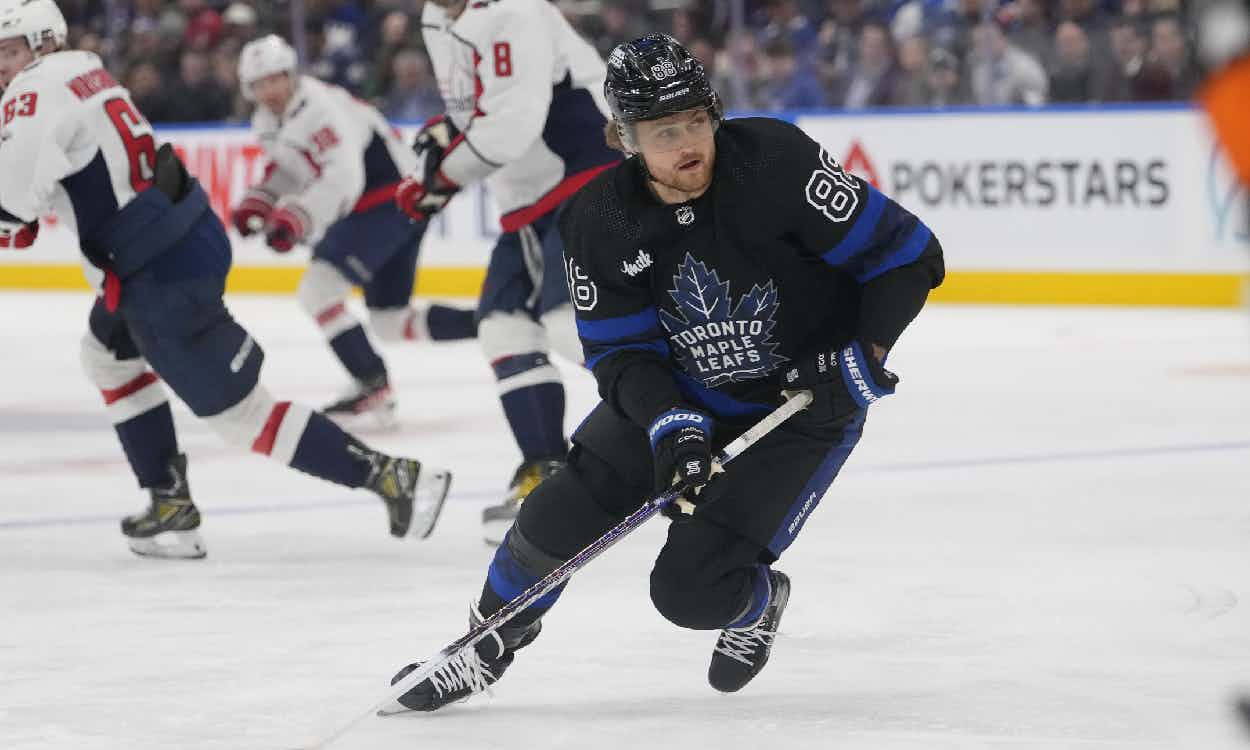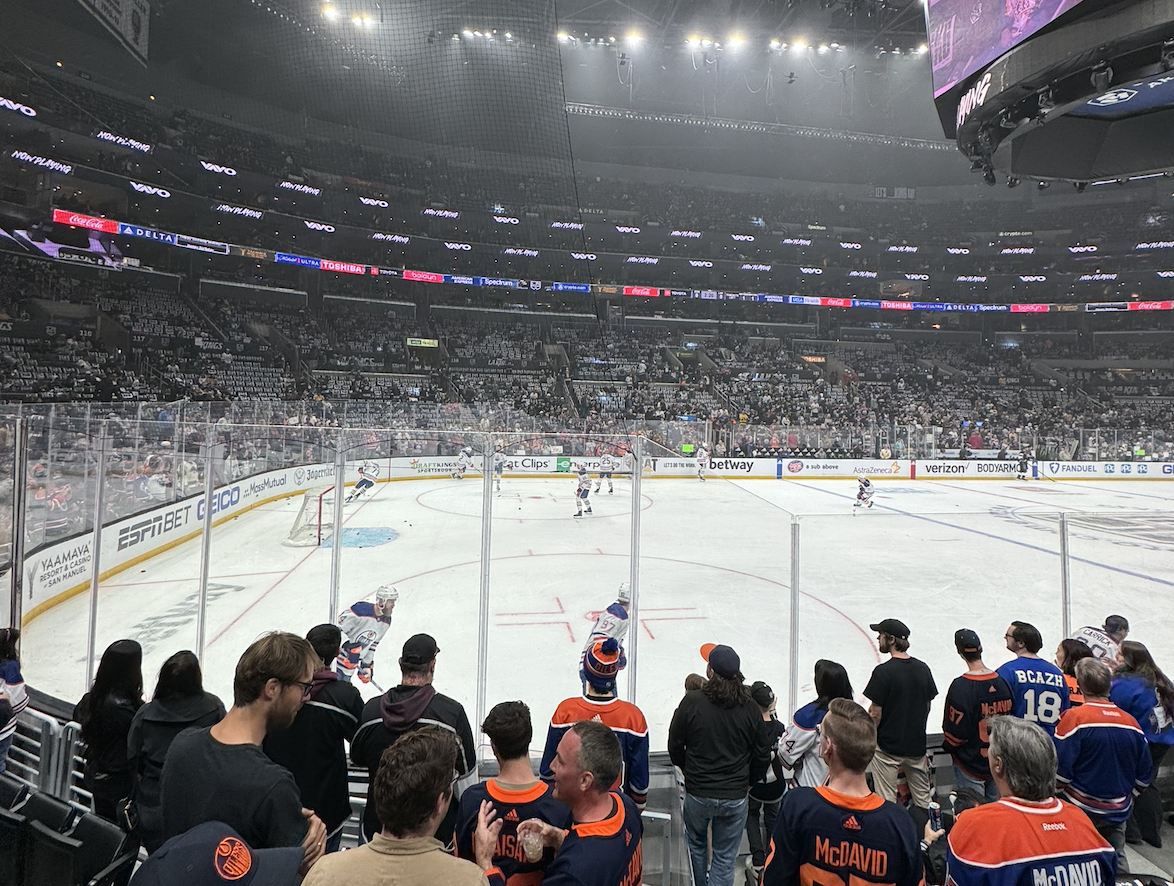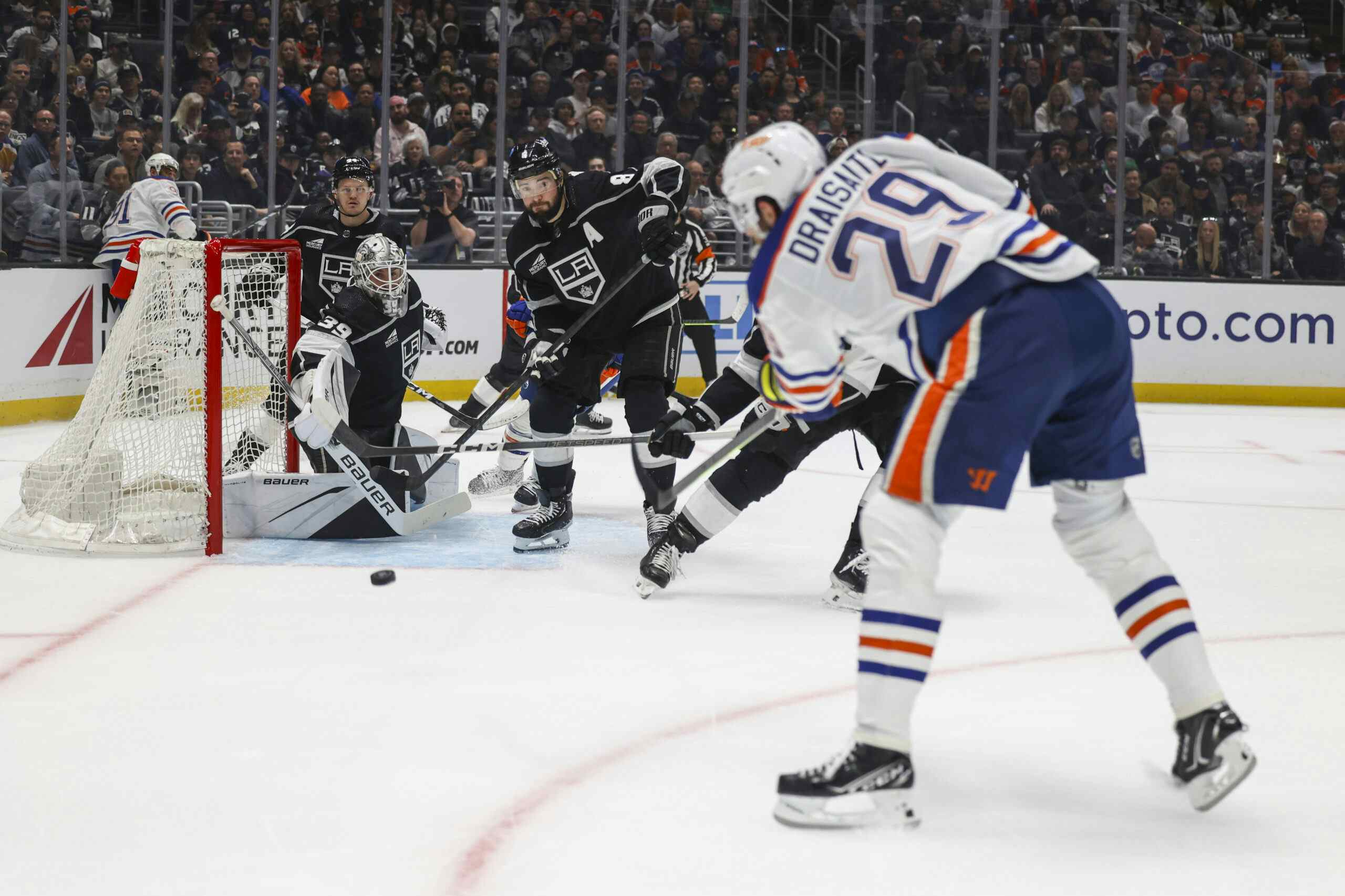Realignment: Good or bad for the Oilers’ playoff hopes?

The NHL is realigning its teams next season, a long overdue move that will shift Winnipeg to the West where they belong, ensure each team hosts every other team at least once, and groups teams more firmly along their time zone lines.
But is it good or bad for the Oilers’ playoff hopes?
The Light Side

It isn’t hard to find the upside here. There are eight playoff spots available to 14 teams. If the new format had been in place this year (and teams had finished in the same relative positions) with both the seventh-best (Detroit) and ninth-best (Columbus) teams in the West last year moving East, suddenly Phoenix, not Minnesota, would have held the final playoff berth.
Still assuming the same relative positions (we will get to schedule effects later) we would have seen the following playoff matchups:
- Chicago (Div. B winner, Conference winner) vs. Phoenix (Wild Card II)
- St. Louis (Div. B second) vs. Minnesota (Div. B third)
- Anaheim (Div. A winner) vs. San Jose (Wild Card I)
- Vancouver (Div. A second) vs. Los Angeles (Div. A third)
The playoffs would then have proceeded along divisional lines, with the winner of Chicago/Phoenix playing the winner of St. Louis/Minnesota, and the winner of Anaheim/San Jose playing the winner of Vancouver/Los Angeles for the divisional titles. Phoenix, though technically part of Division A, would have been eligible to win the Division B crown.
(Incidentally, moving Detroit out of Division B wrecked the most logical naming scheme for the divisions – Gretzky, Howe, Orr, and Lemieux, and that’s a shame.)
The Dark Side
There are a lot of good teams in the Oilers’ division, and the Oilers play a lot of games against them. How much impact will it have on the final standings? It’s hard to tell, but goal differential gives us a hint. I’ve chosen Edmonton and Dallas to represent each team, since Dallas is the closest team in the other western division to Edmonton. The following chart shows how many games each team will play against western opponents, multiplied by average per-game goal differential in 2013, and then combined for a total goal differential over the 50-game schedule (Because we don’t know which team in their own conference each club will play four games against rather than the usual five, I arbitrarily assigned that role to the worst team on each side).

It sounds complicated, but the important thing is that number on the bottom. Edmonton has a slightly tougher schedule by this measure, but the relatively small impact of the unbalanced schedule isn’t enough to make much difference – over 50 games, we’d expect identical teams in the Edmonton/Dallas slots to be one goal apart. The impact of playing in a tougher division only really matters for 11 games and in some of those Dallas will face the tougher opponent (Chicago and St. Louis are as difficult to bear as Edmonton’s rivals in Los Angeles, San Jose, Vancouver and Anaheim).
Bottom line: The slight negative impact of playing in the tougher division in the West is pretty minor, and more than compensated for by the fact that there are only 14 teams, not 15, competing for Western playoff spots. This is good for Edmonton.
Recently around the Nation Network
At Leafs Nation, Jon Steitzer sells the number one item in Jeff Schultz’s favour (the disgruntled Caps defenceman wants to be traded) as an addition for any team: the weak market.
Right now Schultz is sitting on the last year of a deal with a $2,750,000 cap hit, so with one year before unrestricted free agency it may be worth rolling the dice on a 27 year old shutdown defender rather than getting in a bidding war with teams over guys like Robyn Regehr (who somehow signed a two-year extension) on July 5th. It is possible that Schultz could be bought out by the Capitals, but I’d expect that some team would be willing to take him for a year at that price off waivers. The NHL caliber defenseman UFA market is extremely limited when you look at players in their 20s, and is really limited to Ian White and Grant Clitsome before falling off a cliff into Ryan O’Byrne/Mike Kostka territory.
Click the link above to read the whole piece, or feel free check out some of my other pieces here:
- Edmonton Oilers depth chart, June 2013
- Report: Ralph Krueger the Oilers’ second choice for head coach – behind Mark Messier
- Oklahoma will receive "more direction" from the Oilers
- Is there a veteran NHL free agent the Oilers should pursue in net?
- Why Columbus is a great trading partner for Edmonton
- Follow Jonathan Willis on Twitter!
Recent articles from Jonathan Willis





